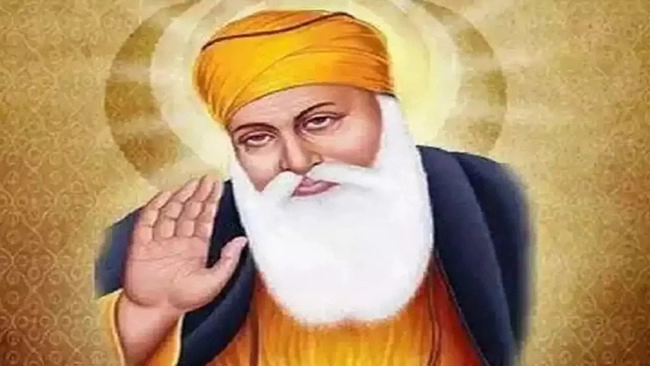Indian Heritage & Culture
Guru Nanak Dev Jayanti
- 08 Nov 2022
- 4 min read
For Prelims: Guru Nanak Dev, Sikhism,
For Mains: Teachings of Guru Nanak Dev, Important Personalities
Why in News?
Recently, the 553rd birth anniversary of Guru Nanak Dev was celebrated.
Who was Guru Nanak Dev?
- Birth:
- In 1459 at Talwandi Rai Bhoe village near Lahore, which was later renamed as Nankana Sahib.
- He was the first of the 10 Sikh gurus and the founder of Sikhism.
- Contributions:
- Initiated inter-faith dialogue way back in the 16th century and had conversations with most of the religious denominations of his times.
- Wrote compositions which were included in the Adi Granth, compiled by Guru Arjan (1563-1606), the fifth Sikh guru.
- This came to be known as Guru Granth Sahib after the additions made by the 10th Sikh guru – Guru Gobind Singh (1666-1708).
- Advocated the 'Nirguna' (devotion to and worship of formless divine) form of bhakti.
- Rejected sacrifices, ritual baths, image worship, austerities.
- Set up rules for congregational worship (Sangat) involving collective recitation.
- Gave the basic mantra of ‘Ek Onkar’ to his followers and insisted on treating all human beings equally, without discriminating on the basis of caste, creed and gender.
- Death:
- In 1539 at Kartarpur, Punjab.
What is the Relevance of Guru Nanak Dev for Modern India?
- Building an Egalitarian Society: His idea of equality can be deduced by the following innovative social institutions, as given by him:
- Langar: Collective cooking and sharing of food.
- Pangat: Partaking food without distinctions of high and low caste.
- Sangat: Collective decision making.
- Social Harmony:
- According to him, the whole world is God’s creation, and all are born equal. There is only one universal creator i.e. “Ek Onkar Satnam”.
- Apart from it, forgiveness, patience, forbearance, and kindness are the core of his teachings.
- Creating a Just Society:
- He placed the motto of "kirat karo, naam japo and vand chhako" (work, worship and share) before his disciples.
- He stood for karma as the basis of dharma, and he transformed the idea of spiritualism into the ideology of social responsibility and social change.
- He advocated the concept of “dasvandh” or donating one-tenth of one’s earnings among needy persons.
- Gender Equality:
- According to him, "Women as well as men share the grace of God and are equally responsible for their actions to him.”
- Respect for women and gender equality is perhaps the most important lesson to be learnt from his life.
- Bringing Peace:
- According to Indian philosophy, a Guru is the one who provides illumination, dispels doubt and shows the right path.
- In this context, the ideas of Guru Nanak Dev can help promote peace, equality and prosperity across the globe.





